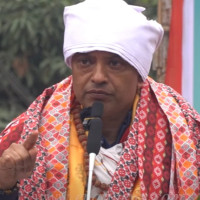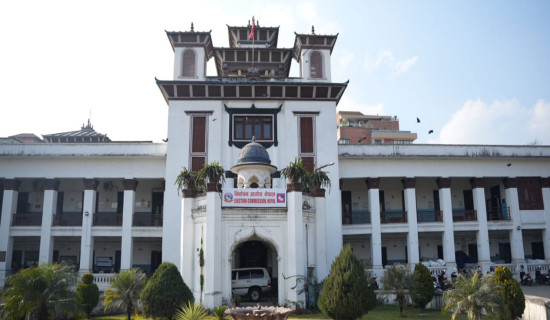- Saturday, 28 February 2026
As Georgia presses on with 'Russia-style' laws, its citizens describe a country on the brink
US, July 22: Eka Gigauri is used to harsh words from officials about the anti-corruption work she does in Georgia. But seeing her face on posters, accusing her of being an agent of foreign influence, a traitor and a spy, rattled her.
Gigauri, who leads one of Georgia's main anti-corruption campaign groups, says she and many others have been targeted in connection with a new law, pushed through parliament by the government.
The "foreign influence" law requires media, civil society groups and nonprofit organizations to register as "pursuing the interests of a foreign power" if they receive more than 20% of their funding from abroad. It also subjects them to intense state scrutiny and imposes steep fines for noncompliance.
The government argues the law is needed to curb harmful foreign actors trying to destabilize the South Caucasus nation of 3.7 million. Many journalists and activists say its true goal is to stigmatize them and restrict debate before an election scheduled for October. It could also threaten Georgia's bid to join the European Union.
The law resembles similar legislation in Russia, where it has been used to crack down on opposition supporters, independent media and human rights activists. Georgian Dream, the country's ruling party, got the legislation through on its second attempt.
Many in Georgia, with its long history of domination by Moscow, supported Ukraine as it battled the Russian invasion. But the Georgian government abstained from joining sanctions against Russia, barred dozens of Kremlin critics from entering the country, and accused the West of trying to drag Tbilisi into open conflict with Moscow.
Almost exactly a year later, Georgian Dream first put the "foreign influence" bill before parliament. Weeks of demonstrations followed, where police used tear gas and water cannons to disperse protesters.
The EU made clear that the bill, if passed, would damage Georgia's membership prospects. In March 2023, the draft legislation was withdrawn. In December, the EU offered Georgia official candidate status, despite concerns about the rule of law.
In April 2024, Georgian Dream brought the bill back to parliament and the protesters returned to the streets. Georgia's pro-EU President Salome Zourabichvili used her veto, but parliament overrode her with a simple majority, and the bill became law.
The day after the bill was enacted, Georgian Dream introduced proposals to ban media depictions of same-sex relations and any public gatherings endorsing them.
Tamar Jakeli, the head of prominent LGBTQ+ rights group Tbilisi Pride, argues that both initiatives are part of a broader strategy by the ruling party to divide society.
"The West, the opposition, LGBT people, and civil society — we are all, together, demonized as spreading LGBT propaganda, trying to impose a Western lifestyle, erase Georgian traditions," said Jakeli, who has moved homes because of safety reasons and carries pepper spray when out.
Like the "foreign influence" bill, the proposed anti-LGBTQ+ provisions mirror Russian legislation. Rumors have swirled for months that Georgian Dream may be acting in coordination with the Kremlin — something the party vehemently denies.
"The evidence for Russia being the power behind Ivanishvili — and Georgian Dream — is, at this stage, circumstantial. But it is nevertheless compelling," James Nixey, Russia and Eurasia director at the London-based think tank Chatham House, wrote in an analysis in May. (AP)















